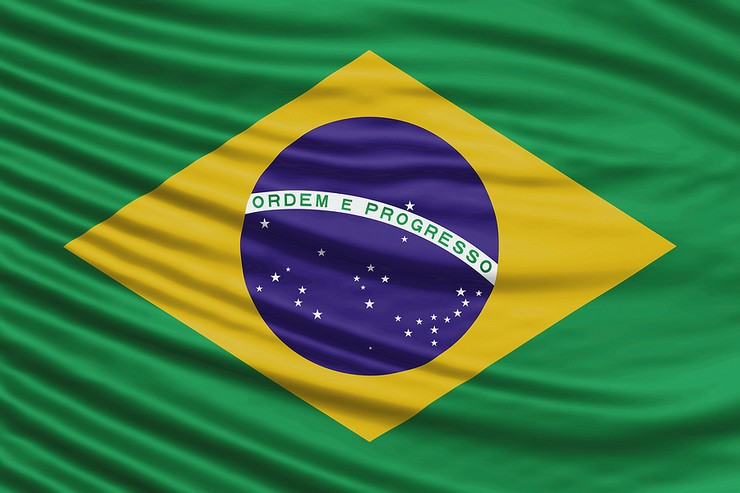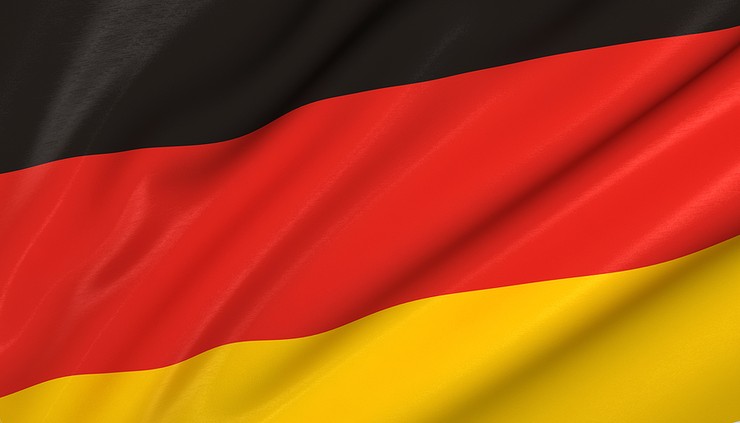Naming Qatar as the hosts of the 2022 World Cup has been one of the more controversial decisions FIFA has ever made, and they’ve made a fair few over the years. In fact, there was so much uproar at the time that even Sepp Blatter publicly acknowledged there was masses of popular support, “circulating around the world” in favour of a second vote on who should host the extravaganza.
FIFA never went ahead with what would have been an historic U-turn though and instead stuck by Qatar despite all the disapproval. Reasons for opposing the Arab state hosting the World Cup varied but a large part revolved around a suspicion that the voting process was not entirely fair. Accusations of corruption and bribery were rife and several of these have been the subject of much media attention.
Although the focus will be the 2022 Qatar World Cup here, we will also touch on other World Cup hosts that have been accused of corruption and bribery. Seen in this context, it may come as less of a surprise that FIFA awarded the World Cup to an incredibly wealthy nation but one lacking in any real footballing history. Or stadia. Or a suitable climate. Or fans.
2011 – Jerome Valcke’s Leaked Email

It was in December 2010 that Qatar were named as hosts of the 2022 World Cup. Only a matter of months later, accusations of bribery had already surfaced. In one notable instance, suspended FIFA vice-president Jack Warner claimed an email sent to him strongly suggested that Qatar, had ”bought” the World Cup.
This email was sent by then-FIFA Secretary General Jerome Valcke and although the Frenchman admitted writing it, he claimed it was meant in a much “lighter” way. Although a little ham-fisted, his general defence was that his email indicated that Qatar ‘bought’ the World Cup in the sense they had a large budget which they utilised very well, not that they purchased votes directly. Qatar official were also quick to reinforce Valcke’s defence by categorically denying any wrongdoing.
Jack Warner & Mohammed bin Hammam Suspensions
Almost at the same time, Jack Warner and Mohammed bin Hammam (former FIFA committee member and Asian Football Confederation president) were suspended from all football related activities following credible accusations they bribed members of the Caribbean Football Union. These accusations came from the mouth of whistle-blower Chuck Blazer, the USA FIFA executive commitment member. The suspension of Bin Hammam forced him out of the running for FIFA president, leaving Sepp Blatter to run unopposed.
Blatter himself was only free to stand in the race as the FIFA Ethics Committee had cleared him of the accusations made by Bin Hammam that he knew of, and approved the alleged payments. While Blatter was let off the hook, Bin Hammam was judged to be guilty of bribery by the Ethics Committee and subsequently handed a lifetime ban from the sport.
Hamman did not attend the hearing himself, believing that the committee was going to rule against him regardless. Instead, Hamman and his legal team sought other routes to clear his name. This they managed in 2012 as the Court of Arbitration for Sport annulled his ban on the grounds of insufficient evidence. FIFA responded a few months later by issuing the Qatari with a fresh life-time ban for supposed repeated “violations of Article 19 (conflict of interest) of the FIFA code of ethics”.
Cash For Votes
Also in 2011, the Sunday Times alleged that Michel Zen-Ruffinen, a former secretary general of FIFA, introduced undercover reporters to an agent named Amadou Diall. The reason for this was that Zen-Ruffinen was allegedly using Diallo to arrange deals with African FIFA members in exchange for votes. A whistle-blower who worked for the Qatari bid even specifically named three African executive committee members that she alleged had received $1.5m to vote for Qatar. She later retracted the claims, saying she fabricated purely out of revenge for losing her job. Two years later though she claimed she was coerced into changing her statement and feared for her safety.
2014 – The Garcia Report

There was a relatively brief period of quiet until a very serious allegation was made in March 2014, courtesy of the Daily Telegraph. In their exclusive piece the paper had been informed that there was evidence that Warner and his family were paid almost $2m from a company controlled by none other than Bin Hammam. One document seen by the newspaper featured a note, dated two weeks after Qatar were awarded the World Cup, that included a $1.2m bill for work carried out between 2005 and 2010.
A few weeks later the Sunday Times reported that they had obtained documents that Bin Hammam had paid football officials in excess of $5m to support the Qatar bid. Much like the accusations in March, these were all quickly denied and/or branded a ‘witch-hunt’ by those involved.
Later in the year Michael J Garcia, the former US Attorney, had completed his report into allegations of corruption in world football. This did not just focus on the 2022 World Cup bid but also Russia’s winning bid in 2018. His investigation began in 2012 and two year’s later he had finalised a 350-page report which was submitted to Hans-Joachim Eckert, first chairman of the Adjudicatory Chamber of the FIFA Ethics Committee.
Refusing to publish the full, unredacted report, citing legal reasons, Eckert only agreed to a 42-page summary instead. The summary cleared both Russia and Qatar of any wrongdoing during the bidding process for the World Cup but did indicate that there was some foul play by the likes of England and Australia during their unsuccessful efforts. Merely hours after Eckert released his summary, a furious Garcia claimed it was “materially incomplete” and included “erroneous representations of the facts and conclusions”.
Despite growing calls to publish the full report, Eckert refused to budge. Such was the fury at the attempts to hide the complete report that UEFA indicated they could quit FIFA if it was not made available. Nevertheless, FIFA’s Appeal Committee ruled against Garcia, provoking him to resign just a day later. Despite all their efforts to keep it private, in 2017 FIFA finally published the report in full but to the surprise of many, it featured no compelling claims that bribery had existed for either the Russia or Qatar bid.
The report also backed up the Qatari position that although payments had been made by Bin Hammam, they were not connected to the World Cup bid and instead were part of his efforts to win the FIFA presidential election.
2019 – Dubious TV Deals

A whistle-blower from Australia’s failed World Cup bid, Bonita Mersiades, published a book in 2018 which stated FIFA were worried that a successful Qatar bid might create a financial short-fall. In response to this, it was alleged that the Qatari state-run broadcaster, Al Jazeera, offered to pay $100m should the Qatar bid be successful. Documented obtained by the Sunday Times seemed to confirm this accusation as there was mention of an unprecedented $100m ‘success’ fee, payable in addition to the standard rights fee.
The Times had also managed to get their hands on another document, dated three years further on, which was another secret TV deal but this time worth $480m in total. This document formed part of a bribery inquiry by Swiss police who were investigating the issue. If true, this mean that in total, Qatar were offering to stump up $880m as part of their efforts to win and retain host privileges for the World Cup. The accusations were taken very seriously among some, with Damian Collins, Chair of the Digital, Culture, Media and Sport Committee, claiming the payments must be frozen immediately and an investigation launched.
Michel Platini Arrest
Also in 2019, former UEFA president Michel Platini was arrested and detained at the Anti-Corruption Office of the Judicial Police in France. After being questioned for several hours, police released him without charge. During his time, investigations quizzed him over a meeting that took place on November 23rd 2010. Attendees at this meeting included then-president Nicolas Sarkozy and officials from Qatar, including crown prince Sheikh Tamim Bin Hamad Al Thani. Although Platini did vote for Qatar, he stated he had made his decision before the lunch, rather than after it.
2020 – More Bribe Allegations

With the World Cup just two years away, finding a new host became increasingly unlikely even as more and more corruption allegations continued to appear. In 2020, US prosecutors revealed details of alleged bribes paid to three FIFA officials. Pursuing the case was rather futile though on the grounds that two of the officials had died and the other lived in Brazil, not a country that has an extradition treaty with the US. Ultimately, their investigation, which had begun years prior, highlighted the difficulty in corruption cases and why convictions are not only infrequent but why they take so long.
Other Corruption & Bribery Allegations
Although FIFA and Qatar have consistently and repeatedly denied and wrongdoing, some may believe there is an awful lot of smoke for there not to be a fire. That said, there has been no case of corruption or bribery that has been proven in court that directly relates to the Qatari bid. There have been suspicious payments and evidence of secret deals, but nothing that acts as conclusive, smoking-gun proof.
It might be easier to dismiss the allegations if FIFA was viewed by the public as a transparent and trustworthy organisation but earlier World Cup bids suggest this is not the case. Accusations of bribery and corruption within the World Cup bidding process are hardly new and many claims have been published by reputable sources.
Russia – 2018

Jack Warner was one of the main figures involved in corruption allegations relating to Russia’s successful World Cup bid. He allegedly received more than $5m through several different wire transactions from various different shell companies. Great lengths had been gone to conceal the reason for the payments but it has been alleged they were specifically for Warner’s support for a Russia World Cup. There was also Rafael Salguero, a Guatemalan official who pleaded guilty to fraud charges as he was offered $1m to vote for Russia.
FIFA looked to launch an investigation into the Russia bid, amid rising corruption claims, but Russian officials said all their computers used in the process had been destroyed. Just a pure, innocent coincidence we are sure!
Brazil – 2014

As far as World Cups go, Brazil ended up relatively unscathed from allegations of corruption, after all, no other countries bid to host it by the time of the vote. It did however find itself under investigation due to the dealings of one man, Ricardo Teixeira. The former president of the Brazilian Football Confederation has been subject to a long list of corruption allegations, dating back to the 1990s. In 2015, Brazilian prosecutors looked into payments totalling $147m coming out of his account that were believed to be connected to the 2014 World Cup.
South Africa – 2010

Jerome Valcke, one of the first names we mentioned in this article, came under fire again in 2015 due to his involvement in South Africa’s successful World Cup bid. Evidence emerged that he was aware of a $10m payment sent to the disgraced Jack Warner – yes, him again! FIFA had denied the Frenchman had authorised the payment but a letter, addressed to Valcke, from the South African FA president, clearly outlined instructions for the payment.
The official line was that the $10m sum to Warner was a government-approved payment to “support the African diaspora in Caribbean countries as part of the World Cup legacy”. The U.S-led indictment, however, understood that the money was to ensure members of CONCACAF voted for South Africa rather than Morocco. Valcke managed to stay clear of punishment for this but by 2016 he was dismissed as FIFA’s Secretary General due to his involvement in black market selling of World Cup tickets.
Germany – 2006

Germany, who very narrowly won the rights to host the 2006 World Cup, ended up accused of bribery years later. Some irregular seven-figure payments had been discovered years after the World Cup and this led the FIFA Ethics Committee to open an investigation in 2016. The legendary Franz Beckenbauer was one of the men at the centre of this case but he managed to escape any punishment. This was not because the allegations of bribery were found to be untrue, only that FIFA were forced to close their investigation because a statute of limitations expired. It ought to be noted here that there was no limitation on bribery prosecutions until 2018, at which point FIFA amended the rules to include a 10-year limit.

